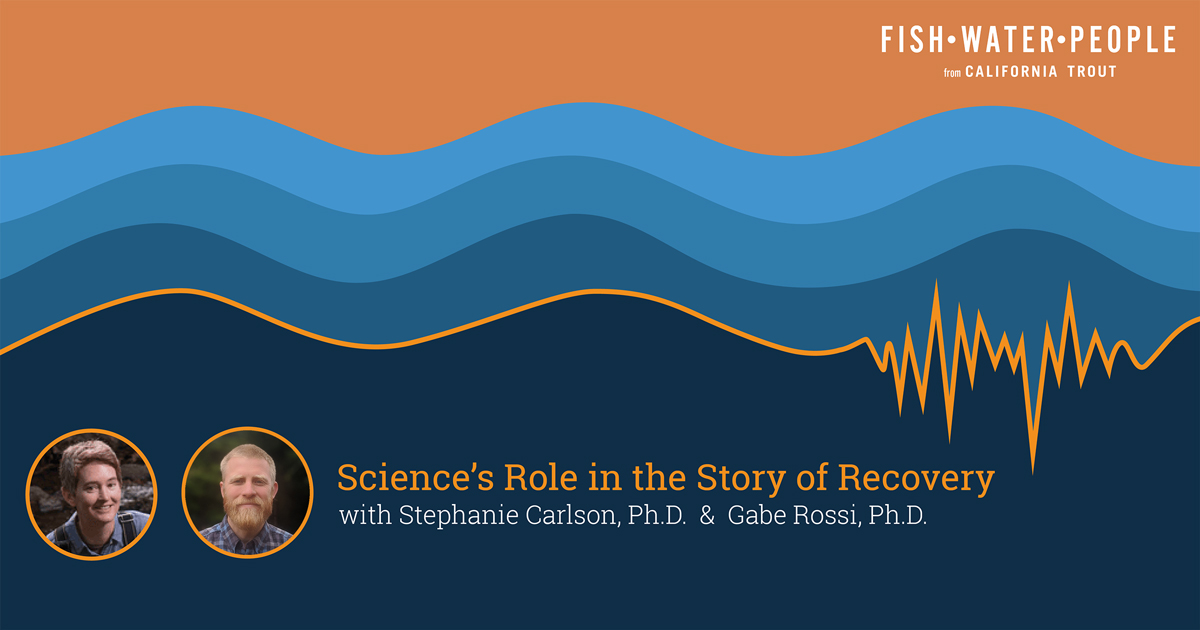Season 2, Episode 2: Science's Role in the Story of Recovery, with Stephanie Carlson and Gabe Rossi
Life history diversity in salmon and trout populations is crucial to building resilience - especially in a rapidly changing environment. But what is life history diversity all about? And how can scientific research leave the lab and inform actual on-the-ground recovery actions? We talk with UC Berkeley researchers and CalTrout collaborators Stephanie Carlson, Ph.D., and Gabe Rossi about science's role in the story of recovery and restoration as an action to unlock life history diversities for fish. You can think of salmon life history diversity like a financial portfolio: a diverse portfolio will be much more resilient to the changes happening around it than one with all the same assets.
We zoom in to the Eel River where salmon have faced incredible adversity and yet are still showing up, and where we explore applied science, CalTrout and UC Berkeley's collaboration in the watershed, and optimism for a return to abundance. Darren Mierau, CalTrout's North Coast Regional Director, also joins the conversation to discuss his team's work in the Eel River watershed with Cal Poly Humboldt researchers to understand non-native pikeminnow as a threat to salmonids and the team's efforts to suppress this non-native predator population.
When the academic world joins forces with entities like CalTrout that are enacting restoration projects, we can have a real chance for recovery of these fish species hovering on the brink.
Share Your Voice
Water touches all of us in both practical and magical ways. What's your relationship with water? What makes California’s rivers and waterways special to you? Let us know!
To have your voice featured on an upcoming episode of the show, record a voice memo and email it to podcast@caltrout.org.
More episodes coming soon!
Stay tuned as the Fish Water People podcast continues with more conversations with people from around the state and beyond.
The Fish Water People podcast is brought to you by California Trout and Bridget Shaw and Drew Alvarez at Pusher Inc. with music from Wilco. Thanks for listening & subscribing!





